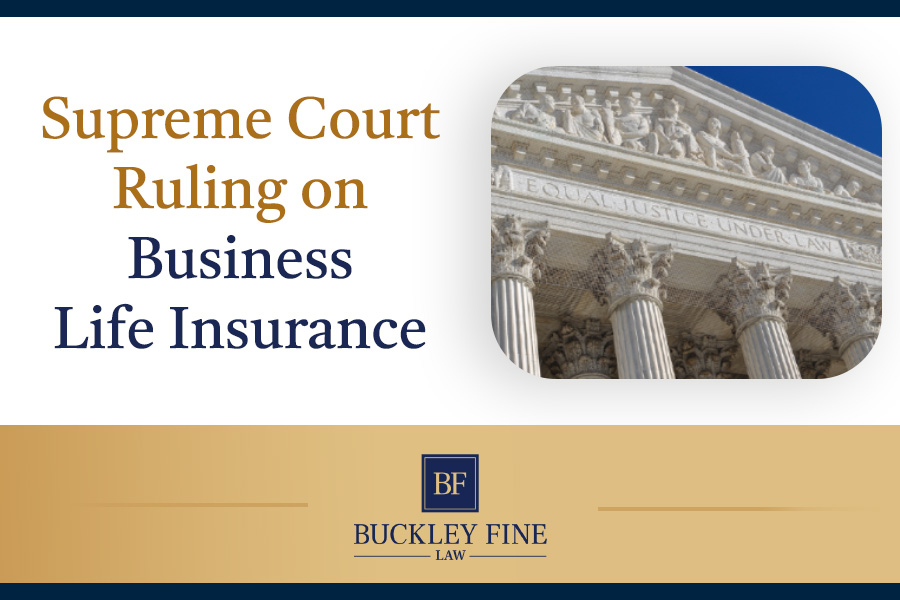The Connelly Case:
Business Owners Need to Review Buy-Sell Life Insurance Ownership
Business owners should review their existing buy-sell agreements and related life insurance policies to see if they need to be restructured. The U.S. Supreme Court’s unanimous ruling in Connelly held that the estate tax value of stock in a closely held company must include the value of life insurance proceeds received by the company due to an owner’s death, even if proceeds must be used to redeem the deceased owner’s shares. This ruling increases the value of the stock for estate tax purposes.
Before Connelly, there was a disagreement among the courts on this issue, with other courts holding that the estate tax value should equal either (i) the life insurance used to redeem the shares, or (ii) the fair market value of the business excluding the life insurance.
Action Steps for Business Owners
Business owners should review their existing buy-sell agreements. The ruling in Connelly negatively impacts redemption buy-sell agreements, but other structures are available to avoid this result. One common alternative structure is a cross-purchase buy-sell agreement, in which the other owners (not the company) own the life insurance. Those owners receive the insurance proceeds directly and use them to buy the deceased owner’s interests, removing the insurance from the business valuation.
The valuation method used in the buy-sell agreement should also be reviewed to confirm if it is still appropriate. Buy-sell agreements should include a clear process to determine the value along with workable payment terms. If the company has grown, the amount of life insurance initially obtained may not be sufficient and should be reviewed as well.
Contact a Buckley Fine attorney to review your current business structure and related agreements: 847-381-0011 or attorneys@buckleyfinelaw.com.



